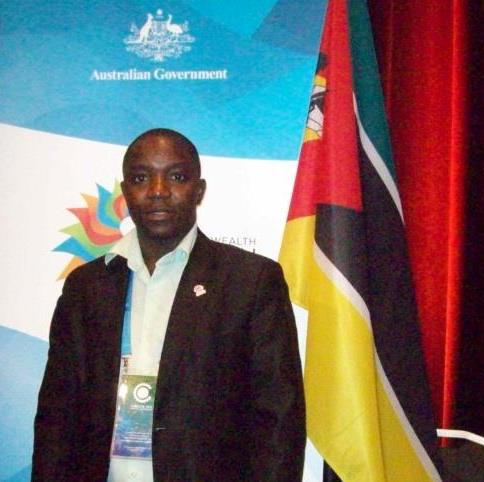"Many countries have never faced a civil war as we had"
April 11 The Head of International Relations for Mozambique’s National Youth Council, Limpo Castigo, speaks to Commonwealth Correspondent Francis Ventura about the improving prospects for young people in his country.
The Head of International Relations for Mozambique’s National Youth Council, Limpo Castigo, speaks to Commonwealth Correspondent Francis Ventura about the improving prospects for young people in his country.
Ventura: Mozambique was last of all Commonwealth nations in the 2010 United Nations Development Index, at number 168. Why is this the case, how can it be rectified, and what is the significance for young people?
Castigo: Many Commonwealth countries have never faced a civil war as we had. It was destructive, mentally and materially. After 16 years of civil war, we have now had only 19 years of freedom and this is only a short period of time to construct a new mentality of development.
Ventura: So the years of civil war and unrest led to this ranking?
Castigo: Yes. The second point is about education. Our education after the civil war was not directed very much towards technical skills, it was mainly focused on areas like science, law, and medicine. [Now] we are working hard on [building] capacities in technical areas.
[For example] we have a lot of mineral resources, but we have never explored them. Rio Tinto is one of the biggest companies now exploring mining, [but] we still have a lot of resources that have not been used [because] we don’t have qualified technicians.
But in these 19 years, we have also had fundamental change. We previously had universities in only three provinces, but now we have them all over the country, a total of something like 37. We only had big hospitals in capital cities, but now we have them at a regional and rural level.
In terms of human resources we are making progress. I’m sure that in the next few years young people will lead the process of development because now they are getting more and more professional. But in terms of good governance, the country is making progress and we are one of the most stable countries in Africa implementing democracy.
Ventura: What has your country done to promote youth development, particularly unemployment and lack of educational opportunity?
Castigo: Things have changed so much in the last ten years. Every province now has at least one university. Primary and elementary school for young people is free – they don’t pay anything. In terms of job creation, this year the government has launched two programs. [The first] is where [youths] undertake entrepreneurship programs. This is the way we can deal with young minds that want to create jobs, not just be given a job.
What the government is doing, through the National Youth Council, is leading this process, working with young people in different communities. Since 2004, the government launched the program of giving something like US$800,000 in rural areas for community project development. We have another program that has been launched in the main capital cities for urban poverty alleviation. So there are so many opportunities for undertaking job creation.
In terms of housing policies, this year a policy was launched to build 10,000 houses where young people – through the National Youth Council – will be the priority in term of beneficiaries. Construction started [in September 2011] and by December [2012], they will be able to have houses. [So as you can see] there are so many things that have been done to reduce the level of poverty and enhance the quality of life of young people.
The challenge is that young people need to know their rights. It’s not just a matter of having university degrees, it’s a matter of understanding the tools of governance. If you understand the tools of governance, you will be able to assess and monitor the government. Young people can join together and say ‘no, the ways things are going are not the way you have been telling us when we elected you’.
We, as the National Youth Council, are developing a program called ‘Observers of Good Governance’. We go to the provinces and gather young leaders from each district… and we have a forum with the provincial government members and civil society leaders.
Young people can ask questions and discuss how they can be a part of the process of good governance. If something is wrong, they’ll know whom and how to approach. We are giving this capacity to the young people all over the country.
…………………………………………………………………………………………………………………
Limpo Castigo is Head of the International Relations Department of Mozambique’s National Youth Council’s, former National President of the University Student Movement, country youth focal point for the Southern African Development Community (SADC), Peace Ambassador for Peace Journey in Africa and Commonwealth Regional Youth Caucus Member for Africa.
…………………………………………………………………………………………………………………
Opinions expressed in this article are those of the author and do not necessarily represent the views of the Commonwealth Youth Programme. Articles are published in a spirit of dialogue, respect and understanding. If you disagree, why not submit a response?
To learn more about becoming a Commonwealth Correspondent please visit: http://www.yourcommonwealth.org/submit-articles/commonwealthcorrespondents/
…………………………………………………………………………………………………………………




